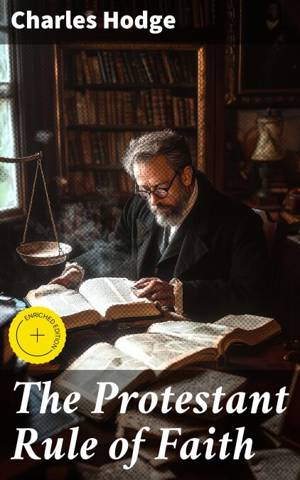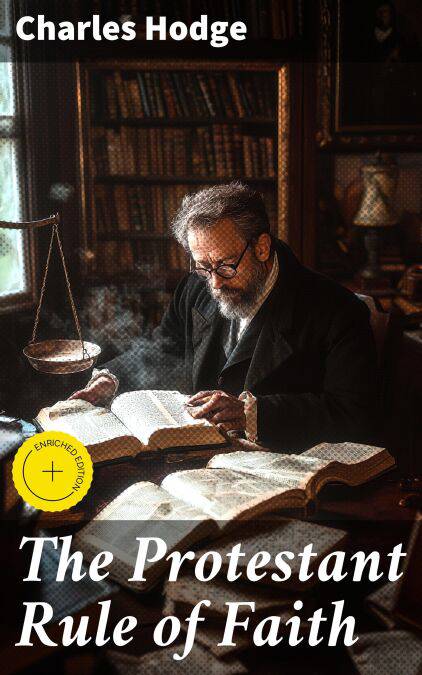
- Retrait en 2 heures
- Assortiment impressionnant
- Paiement sécurisé
- Toujours un magasin près de chez vous
- Retrait gratuit dans votre magasin Club
- 7.000.0000 titres dans notre catalogue
- Payer en toute sécurité
- Toujours un magasin près de chez vous
The Protestant Rule of Faith EBOOK
Enriched edition. Exploring the Foundations of Protestant Theology
Charles Hodge
Ebook | Anglais
1,99 €
+ 1 points
Description
In "The Protestant Rule of Faith," Charles Hodge offers a compelling examination of the foundational principles underpinning Protestant beliefs. Hodge articulates the necessity of Scripture as the sole rule of faith, engaging in a critical dialogue with both Catholic and rationalist perspectives. His literary style exemplifies clarity and logical rigor, appealing to both scholars and lay readers alike. This work is situated in the context of 19th-century American theological discourse, a period marked by a burgeoning interest in the interplay between reason and revelation within Christian faith. Charles Hodge, a prominent Princeton theologian, was deeply influenced by the theological tensions of his time, including the rise of liberalism and historical criticism. His scholarly commitment to maintain doctrinal orthodoxy provided the impetus for this rigorous defense of Protestantism. Hodge's academic background and clerical experience, combined with his role as a leading figure in the Old School Presbyterian movement, uniquely positioned him to address the challenges posed by contemporaneous theological debates. Readers seeking to navigate the complexities of faith and doctrine will find "The Protestant Rule of Faith" invaluable. Hodge's incisive arguments and thorough analyses not only defend the authenticity of Protestant beliefs but also invite reflection upon the essential tenets of Christianity. This book is an essential read for anyone invested in the foundational questions of faith and the interpretation of Scripture.
In this enriched edition, we have carefully created added value for your reading experience:
- A succinct Introduction situates the work's timeless appeal and themes.
- The Synopsis outlines the central plot, highlighting key developments without spoiling critical twists.
- A detailed Historical Context immerses you in the era's events and influences that shaped the writing.
- A thorough Analysis dissects symbols, motifs, and character arcs to unearth underlying meanings.
- Reflection questions prompt you to engage personally with the work's messages, connecting them to modern life.
- Hand‐picked Memorable Quotes shine a spotlight on moments of literary brilliance.
- Interactive footnotes clarify unusual references, historical allusions, and archaic phrases for an effortless, more informed read.
In this enriched edition, we have carefully created added value for your reading experience:
- A succinct Introduction situates the work's timeless appeal and themes.
- The Synopsis outlines the central plot, highlighting key developments without spoiling critical twists.
- A detailed Historical Context immerses you in the era's events and influences that shaped the writing.
- A thorough Analysis dissects symbols, motifs, and character arcs to unearth underlying meanings.
- Reflection questions prompt you to engage personally with the work's messages, connecting them to modern life.
- Hand‐picked Memorable Quotes shine a spotlight on moments of literary brilliance.
- Interactive footnotes clarify unusual references, historical allusions, and archaic phrases for an effortless, more informed read.
Spécifications
Parties prenantes
- Auteur(s) :
- Editeur:
Contenu
- Nombre de pages :
- 29
- Langue:
- Anglais
Caractéristiques
- EAN:
- 4064066403058
- Date de parution :
- 07-12-20
- Format:
- Ebook
- Protection digitale:
- Digital watermarking
- Format numérique:
- ePub

Seulement chez Librairie Club
+ 1 points sur votre carte client de Librairie Club
Les avis
Nous publions uniquement les avis qui respectent les conditions requises. Consultez nos conditions pour les avis.






